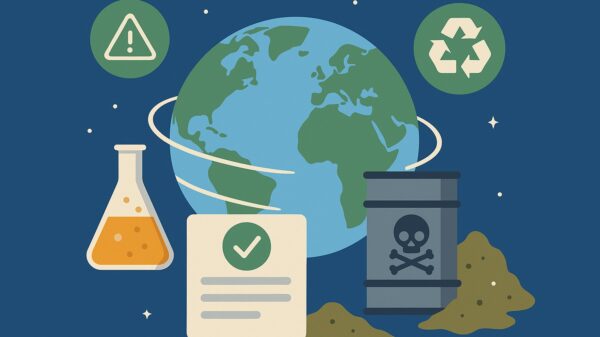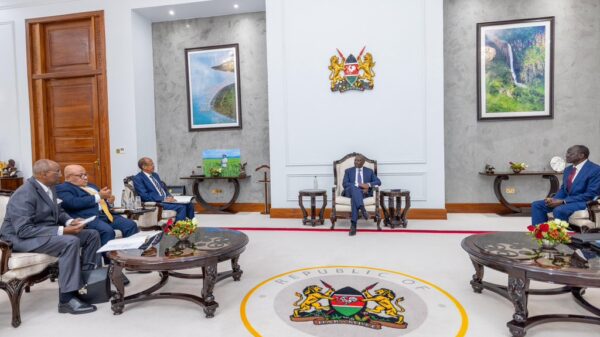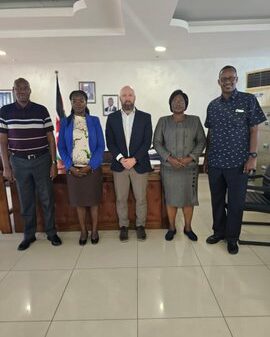
The officials initiated a campaign aimed at distributing one million condoms ahead of the Valentine’s Day celebrations on Friday/FILE
The officials initiated a campaign aimed at distributing one million condoms ahead of the Valentine’s Day celebrations on Friday.
During the campaign, they urged Kenyans to add a condom to the equation if they intend to engage in sexual activity.
According to the Deputy Director of NASCOP Martin Sirengo, the number of persons infected with HIV/AIDS has reduced due to the increased use of condoms.
Sirengo said: “As of last year the number of people infected between the age of 15 and 49 stood at 5.6 percent from an initial 7.2 percent.”
“There is an increased use in condoms which has greatly contributed to the reduction of those infected with the HIV virus. Five years ago only one out of 10 people used condoms and today approximately seven people use condoms,” he explained.
He however noted that some people remain ignorant about the use of condoms with some communities still considering it taboo.
Sirengo assured that their campaigns will be devolved to all counties as they aim at achieving the Vision 2030 goal of reducing the prevalence of HIV/AIDS.
Nairobi County government Health Director Samuel Ochola however raised concern over the heightened increase in HIV/AIDS prevalence in the County.
“Nationally HIV prevalence is at 5.6 percent while that of Nairobi is 8.6 percent. Nairobi is the home to approximately 269,900 people living with HIV; In addition it has the highest new adult HIV infections at 13,510 per year and the highest HIV incidence among children at 1,715 new infections per year.”
“These figures are unacceptably high given the time we are living in when the scientific and technological advances point to a possibility of eliminating new infections particularly for children being born by HIV positive mothers,” explained the County Health Director.
He also observed that to increase the use of condoms, there is need to promote them as part of a strategic, coordinated and comprehensive condom programming effort.
“We need to de-stigmatise condoms by engaging in open discussions and by creating an environment in which those who need them can freely access them,” he urged.
First Lady Margaret Kenyatta earlier this month launched the registration of the First Lady Half Marathon expected to take place in March 9 this year, in efforts to create awareness of the ongoing ‘Beyond Zero’ campaign.
The ‘Beyond Zero’ Campaign seeks to mobilise citizens, the private sector and other stakeholders to come together to raise funds and help minimise HIV/AIDS, child and maternal health challenges.
Accompanied by various Governors’ wives, the First Lady called on Kenyans from all walks of life to support the initiative and raise funds to purchase 47 mobile clinics to be distributed to all counties.
“Mothers and children are suffering and dying in this country of avoidable causes – pneumonia, malaria, diarrhoea and HIV transmitted from their mothers. It pains me, especially as a mother. But together we can make a difference,” she said.
The marathon will take place at Uhuru Gardens ahead of the London Marathon which she also plans to participate in, on April 14, 2014.
Appealing to all citizens to support the ‘Beyond Zero’ Campaign, the First Lady urged people to register their support by either participating in the Half Marathon or contributing any amount towards the noble cause.
“I have decided to do something I have never done before: I will run to make a difference for our mothers and children. Few of us know enough about HIV transmission from mothers to children, or about improving maternal, newborn and child health. If we don’t raise awareness, nothing will change,” Mrs Kenyatta noted.


































